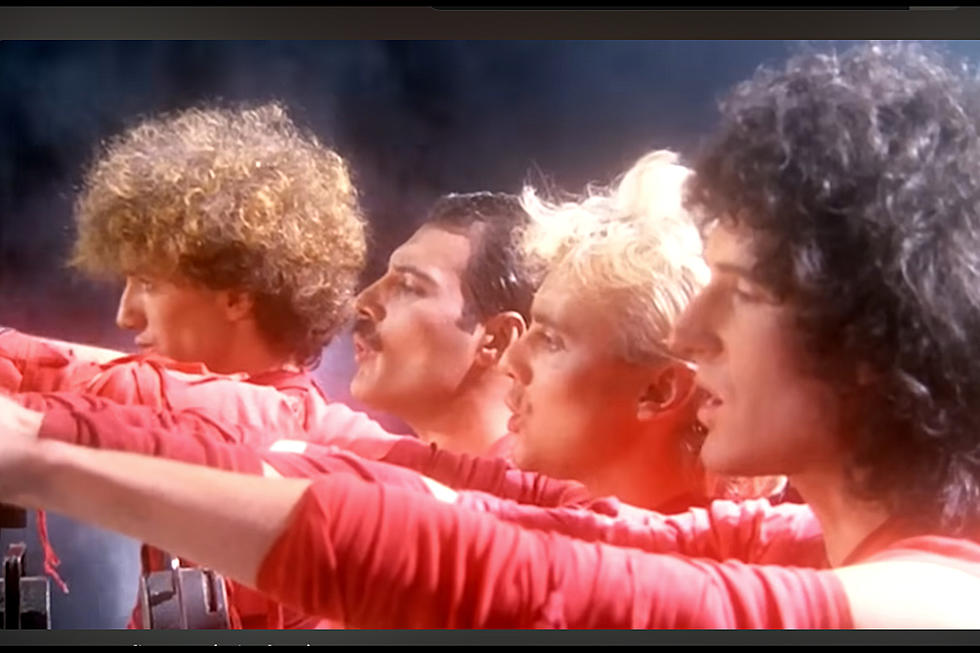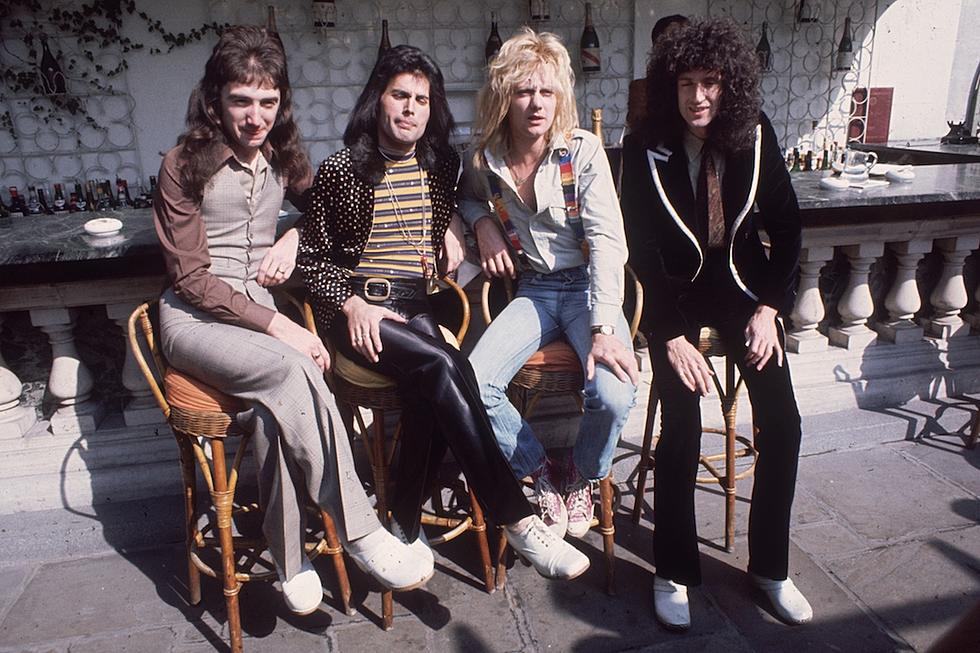
Why Queen Scaled Things Back on ‘News of the World’
Released on Oct. 28, 1977, News of the World heralded a radical shift in direction for Queen, while launching two of the most important songs of their career. By the time the group went into the studio to record News of the World, they had already developed a signature sound that encompassed hard rock, pop, classical and even vaudeville, featuring elaborate instrumental arrangements and ambitious vocal arrangements.
Even though previous albums A Night at the Opera and A Day at the Races – which featured highly crafted studio recordings like "Bohemian Rhapsody," "The Prophet's Song" and "Somebody to Love" – were successful, Queen were ready to move in a different direction with their next album. The songs the group wrote for News of the World were shorter and more to the point, and when the musicians went into the studio to record the album they produced the new tracks in sparser, more straightforward arrangements that de-emphasized the lavish overdubbing of past efforts and focused on the essential elements of each song.
Frontman Freddie Mercury and guitarist Brian May had mostly dominated previous albums as writers, though bassist John Deacon had written one of Queen's biggest hits, "You're My Best Friend," for A Night at the Opera. With News of the World, Deacon and drummer Roger Taylor both made significant contributions as songwriters. Deacon wrote "Spread Your Wings," which became one of the album's singles, and "Who Needs You," which was the closest thing to a throwback to early Queen with its vaudeville influence. Taylor wrote "Sheer Heart Attack" – on which he played rhythm guitar and bass as well as drums – and "Fight From the Inside," on which he also sang, played drums, bass and guitar, making it a virtual solo track with the exception of May's additional guitar.
May contributed "It's Late," which he conceived as a three-act play, and "Sleeping on the Sidewalk," a blues tune inspired by his interest in ZZ Top. The backing track for that song was laid in one take – a very different approach than Queen's penchant for huge productions.
Mercury wrote extremely different styles of songs for News of the World, Get Down, Make Love" was a hard rock tune that was among the most overtly sexual Queen ever recorded, providing a context for a Brian May guitar solo that became a centerpiece of subsequent live shows, while "My Melancholy Blues" was a piano ballad that featured no backing vocals or guitars at all.
Both May and Mercury made by far their most important contributions to the album practically by accident. May wrote "We Will Rock You" in a deliberately simple manner in an attempt to engage fans more in the group's live gigs, while Mercury's "We Are the Champions" was a rumination on fame that dated back to 1975.
The two songs had little to do with each other, but they were bonded together on the album, and consequently released as a double a-side single, charting all over the world and becoming two of the most recognizable songs in the Queen catalog.
News of the World was a hit all over the world, and its radical shift in direction saved Queen from the fate of a number of other British bands like Yes, Jethro Tull and Emerson, Lake and Palmer, whose brand of progressive rock was pushed aside by the emergence of punk. Queen would prove one of the most flexible and adaptable of the '70s superstar groups, eventually essaying disco, rockabilly and New Wave among other styles before returning to the roots of the group for it final release before Mercury's death, Innuendo.
Rock Stars Who Walked Away and Never Looked Back
You Think You Know Queen?
More From Ultimate Classic Rock









